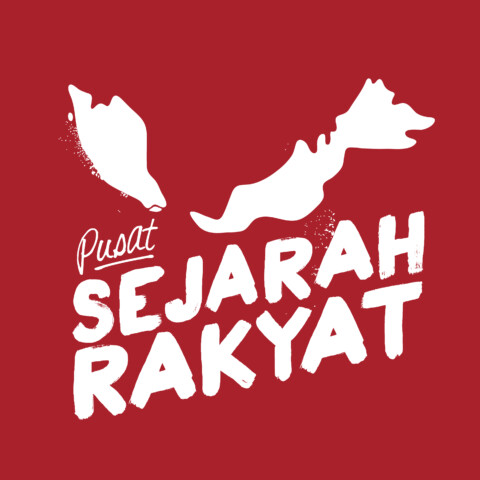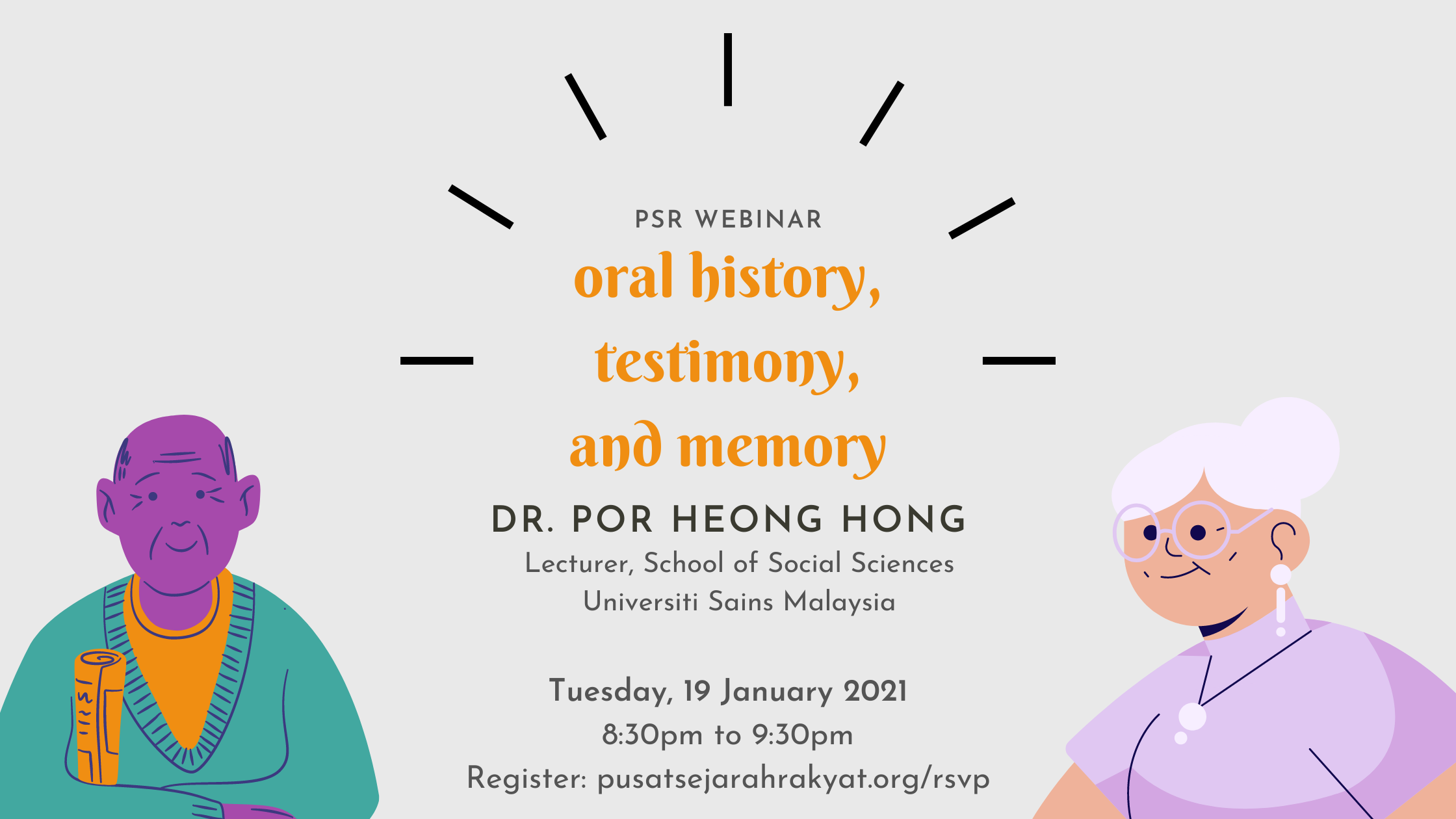Date: Tuesday, 19 January 2021
Time: 8:30pm to 10:00pm
Venue: Online
Oral history is more than just a tool for collecting historical “data”. Through conversation with a narrator, oral historians collect the narrator’s voice, testimony, life experience, emotion, and views, which are often deemed “unobjective” or even “unimportant” by many. It is a tool that democratises and decentralises the businesses of doing history, not only from the domination of professionally trained historians, but also from certain conceptions regarding what deserves to be recorded as history. How does one conduct oral history? What are the challenges of conducting and processing oral history? Join us for a conversation with social scientist, Dr. Por Heong Hong.
Speaker
Dr. Por Heong Hong is a Lecturer at the School of Social Sciences, Universiti Sains Malaysia. She uses a wide range of conceptual and analytical tools from across various disciplines in the field of social sciences to interrogate issues pertaining to medicine, health and diseases, bodies, modernity and nationalism. She has published papers on the dynamics of the healthcare system in Malaysia, migration and mental health institutions in colonial Malaya, and colonial visual representation of leprosy. Recently, she has also developed interest in politics of memory. Her geographical focus is mainly Malaysia, Southeast Asia and East Asia.
Discussant
Dr. Leong Kar Yen is currently an assistant professor at a university in Taiwan. His articles have been published in Kritika Kultura and has also authored several upcoming articles in Memory Studies and Space and Culture. His other works also include a contribution to an edited volume on Oral History in Southeast Asia published by Palgrave Macmillan. His interest looks at the intersection between memory, history and human rights in Southeast Asia. Dr. Leong is currently involved in a project which investigates the materiality of human remains and bodies in the context of mass violence.
This event has ended. Please find the recording of the webinar below.

